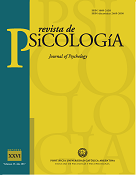The cohabitation norm-autonomy in the care of the elderly by home-care workers : a paradoxical whole
Keywords:
Old age people, Home-care service, AutonomyAbstract
This article focuses on the activity of home care by questioning the term and the materialization of the concept of autonomy in the performer's work, delineated by procedures, standards and orders that reduce individual latitudes. Autonomy being a spearhead in the sector and in the professions of care, we question the paradox found by the professional who must play with virtual margins of autonomy to preserve that of others, equally vulnerable. This daily "juggling" at work has an impact on the experience, professional practice and health of these professionals. These considerations are applied to the possible implications and consequences of cohabitation between norms and autonomy in a group of home-care service workers (perceived with their specific profiles and practices) occupied mainly with the elderly, whose home becomes the other's workplace. These reflections are based on the results of a field study conducted on a sample of 136 performers of home-care services, using a mixed methodology (136 questionnaires and 40 interviews). Finally, the reflection is also oriented towards the regulation and organizational methods in force in the sector, in order to bring to light some paradoxes that disturb the professionals, whose own autonomy when becoming a performer becomes desire, between part wish and part inaccessible.Downloads
Download data is not yet available.
Downloads
Published
04/11/2018
How to Cite
Disquay-Perot, S., Cocandeau-Bellanger, L., & Egido, Ángel. (2018). The cohabitation norm-autonomy in the care of the elderly by home-care workers : a paradoxical whole. Revista De Psicología, 13(26), 45–54. Retrieved from https://erevistas.uca.edu.ar./index.php/RPSI/article/view/1052
Issue
Section
Articles
License















